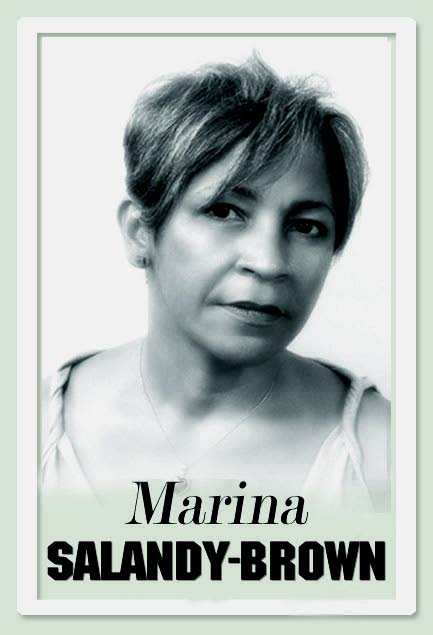What makes people poor

It may be foolhardy of me to try to address such a big issue in a very limited word space, but I was recently in the US and the poverty there is so ugly that it takes on a dimension of its own. It travels up your nostrils and finds its way into your gut and into your brain.
Poverty anywhere is as unpleasant and sad to behold as it is wretched for those who endure it, not just physical poverty, but poverty of the spirit and the mind. I have written here before about the difference between rural poverty, especially in the tropics, where housing and food are less difficult to organise, and urban poverty, which makes many of us feel overwhelmed by a sense of helplessness.
It is quite possible to live middle-class lives and remain oblivious to the poor in our midst, especially in developed countries, where poor people do not live in cardboard or tin huts, in favelas that climb up steep mountainsides brooding over smart cities, such as Rio de Janeiro or Caracas, or even Port of Spain.
But I believe that is not to live fully. One should keep one’s eyes open always, alert to all around us. In order to see the poverty, one has to get out and walk through places that middle-class people don’t normally go to.
Two weeks ago, I spent time in Brooklyn in the state of New York with a friend who, although she no longer works with the American Society for the Prevention of Cruelty to Animals (ASPCA), still rescues cats, determined to reduce the number of feral felines constantly dropping litters of new kittens that soon become flea-ridden, sick, pregnant and poisoned and killed. The trunk of her Audi carries a cage to trap wild urban cats with bits of food and then take them to certain registered vets who will neuter them for free, but sometimes she pays out of her own pocket for certain medical procedures. She then finds foster homes for the cleaned-up cats with the hope that they get to stay there. Her success rate is high.
To do this voluntary job she has a network of people who assist her. They put out food for the cats. All of them, she tells me, are the least able to help because they are the poorest, they have tragic life stories – abuse, drug addiction, criminal pasts, diseases, unemployment. We meet them in the street or as they leave their dwelling places in what appear to be big, beautiful, famous brownstone houses that are the desire of yuppies who cannot afford to live in more expensive New York areas and are slowly gentrifying the area; but inside, quite a few of her allies occupy single, rundown rooms.
She has got to know some of them well, and the cycle of poverty is the same: systemic disadvantage – dysfunctional family and absent parents leading to emotional problems, including drug taking and sub-standard school performance in already inadequate schools, often leading to poor literacy and numeracy, early parenthood and low-paying jobs or a life on welfare or crime.
I checked out what was happening in schools and noted that the NY state test results were just released. Sadly, more than half the children did not pass the numeracy and language tests.
At the bottom of the pile are African-American and Hispanic students, with the gap between them and the white and Asian students growing. In Brooklyn, precisely, two-thirds of white and Asian students passed but only one-third of black and Hispanic students did.
If anybody ever doubted the need to be literate and educated, the long-term fall-out of these sorts of academic results cannot be disputed, not there, not here either – not anywhere.
Current talk about China being the next superpower is not really about military might or economic performance: it will be about the power and freedom to think. Opening up the Chinese economy allowed starving, poor people to be educated, bringing societal changes. Chinese now freely travel to foreign institutions of learning, they rank highest among applicants for US Ivy League university places and probably do the same at UK universities. They are the most numerous applicants, forcing administrators to make hard decisions based on ethnicity, because the Chinese alone could fill all the expensive courses and provide valuable revenue.
The US will lose its superpower status, as the current message coming down is as ideologically and intellectually stifling as the dead hand of Chinese political ideology.
In the US, the underclass is deepening, and in China the absence of freedoms and human rights will stop it becoming the fountainhead of discovery, freethinking and opportunity that made the US the most powerful country in the world. The power to imagine another future is the only exit from physical poverty in Brooklyn and mental poverty in Beijing.


Comments
"What makes people poor"